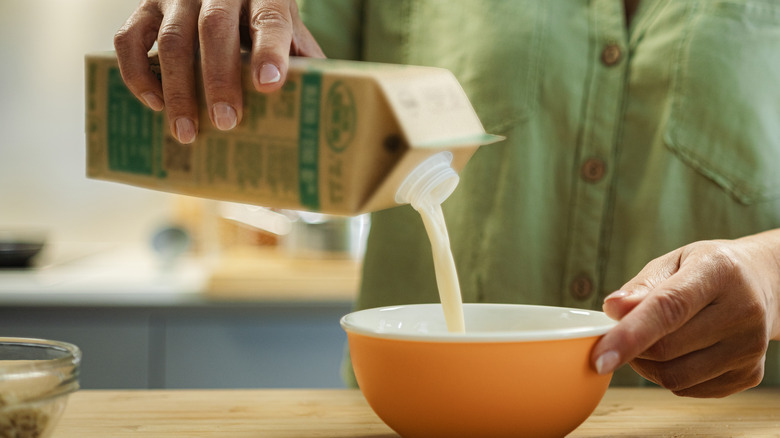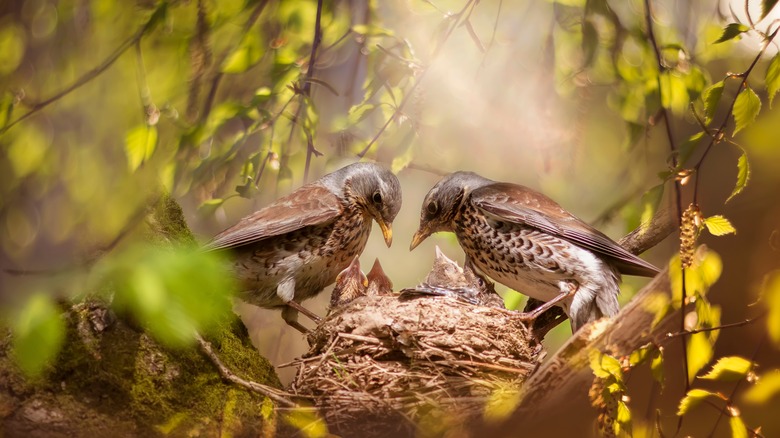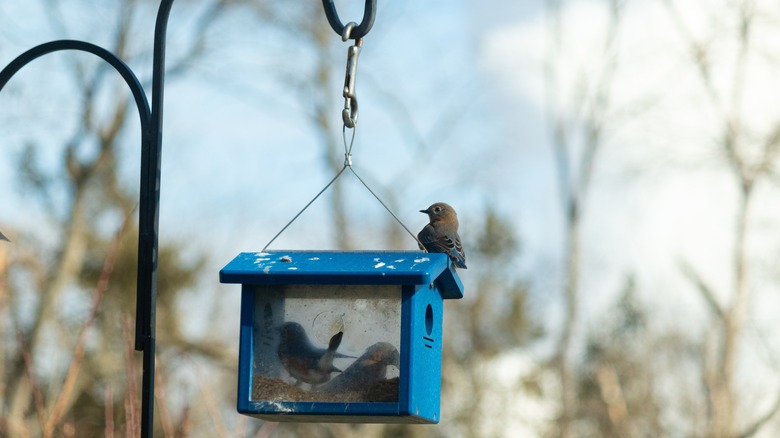Should You Leave A Bowl Of Milk Out For Baby Birds?
Seeing a baby bird, or fledgling, in your yard may make you think you should feed it milk, especially if it's lost or you don't spot its mother. However, birds aren't mammals; instead, they're avians. The distinction means birds don't make milk for their young, nor do they ingest it. The only exception within the animal kingdom is crop milk, a milky substance that male penguins, pigeons, and flamingos create for their young. Should you leave out cows' milk for the birds? The short answer is no, because it could make a bird sick.
Birds lack the lactase enzyme, and they are lactose intolerant. Their parents instead feed them a selection of suitable food, such as worms, insects, and occasionally seeds, with the diet dependent on the species. The Humane Society of the United States says, "over 90% of songbirds rely on insects to feed their young," so insects are a big deal among birds! If you'd still like to help baby birds in your yard, there are several great alternatives to a bowl of milk.
What to feed baby birds
The best way to help feed baby birds is to make sure their parents can sufficiently feed them. Adult birds can easily eat seeds, but most young songbirds mainly eat the insects and worms they receive from their parents. For example, the American Bird Conservancy reports that scientists watched one pair of chickadees feed 9,000 caterpillars to their young. Parents can spend hours each day looking for food for their young as well as themselves, feeding their babies repeatedly until nightfall.
You can leave out mealworms to help adult birds sustain their energy as they rush to find insects for their hungry brood. While live mealworms are preferred, some birds will eat dried mealworms, though they shouldn't be the bulk of their diet. Bird species such as Bluebirds, Chickadees, and Wrens will appreciate the mealworm snack. You can use a special mealworm feeder or offer the live worms in a shallow container with sides high enough to keep them from crawling away. However, the best way to help ensure the baby birds get enough food is to create an environment rich with insects, and there are a few ways to do that.
How to create a yard that nourishes birds
As birds rely heavily on insects, consider making your yard or garden enticing to a variety of bugs to keep your feathered friends satisfied. Opt for a pesticide-free garden, and instead, use bird feeders as a line of defense against pests. Your choice to eliminate pesticides will not only help the birds, but also help our ecosystem, especially as the global insect population is estimated to decline by 9% every decade, according to a 2020 study published in the journal Science.
Filling your yard or garden with native plants can also help insects and birds. Discover the best native plants for your region, and plant them in abundance to encourage bug-eating birds to visit. Birds won't be the only occupants, as pollinators will view your yard as an all-you-can-eat buffet. Go one step further, and leave any piles of leaves or grass clippings alone, because these are great homes for insects.


